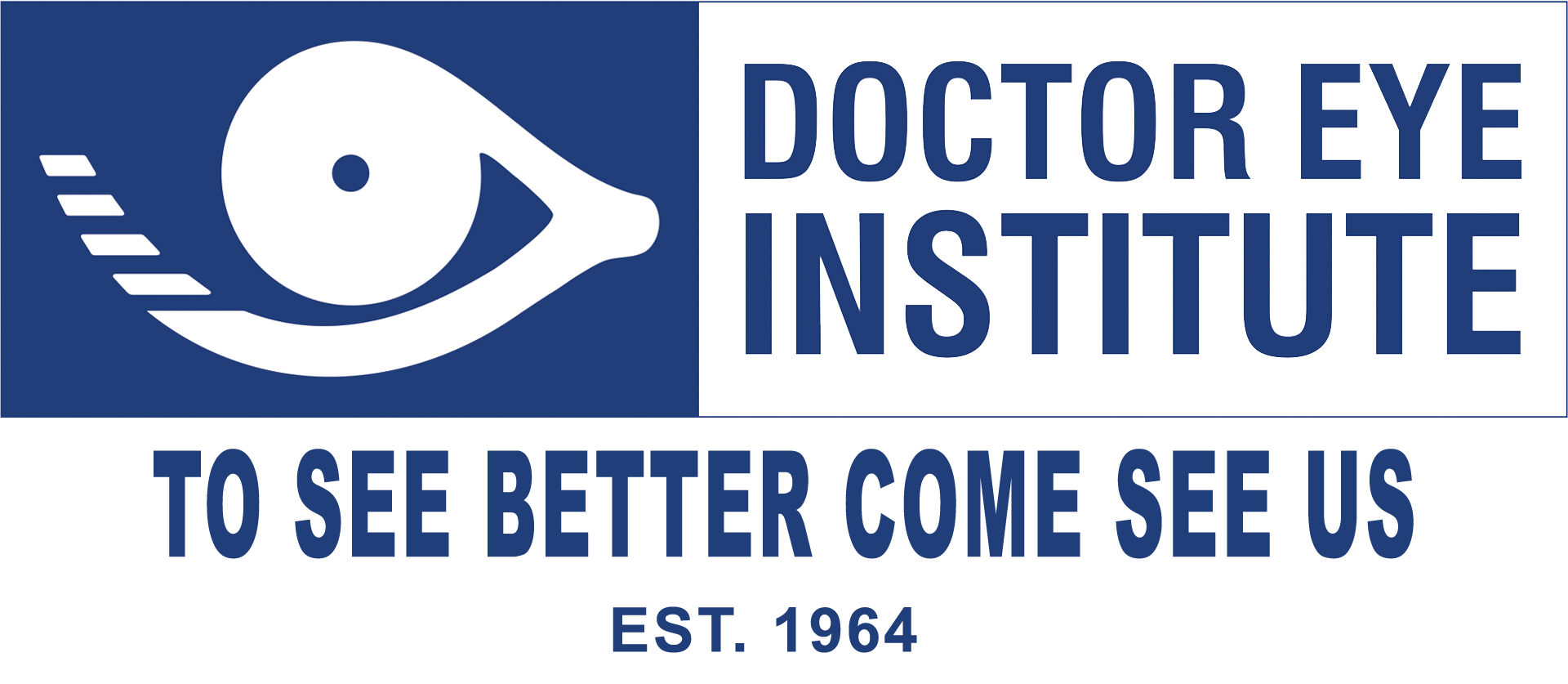Keratoconus Treatment in Andheri, Mumbai
Keratoconus is a progressive eye disorder characterized by the thinning and cone-like bulging of the cornea, leading to distorted vision. The irregular shape of the cornea disrupts the normal light path, causing visual disturbances.
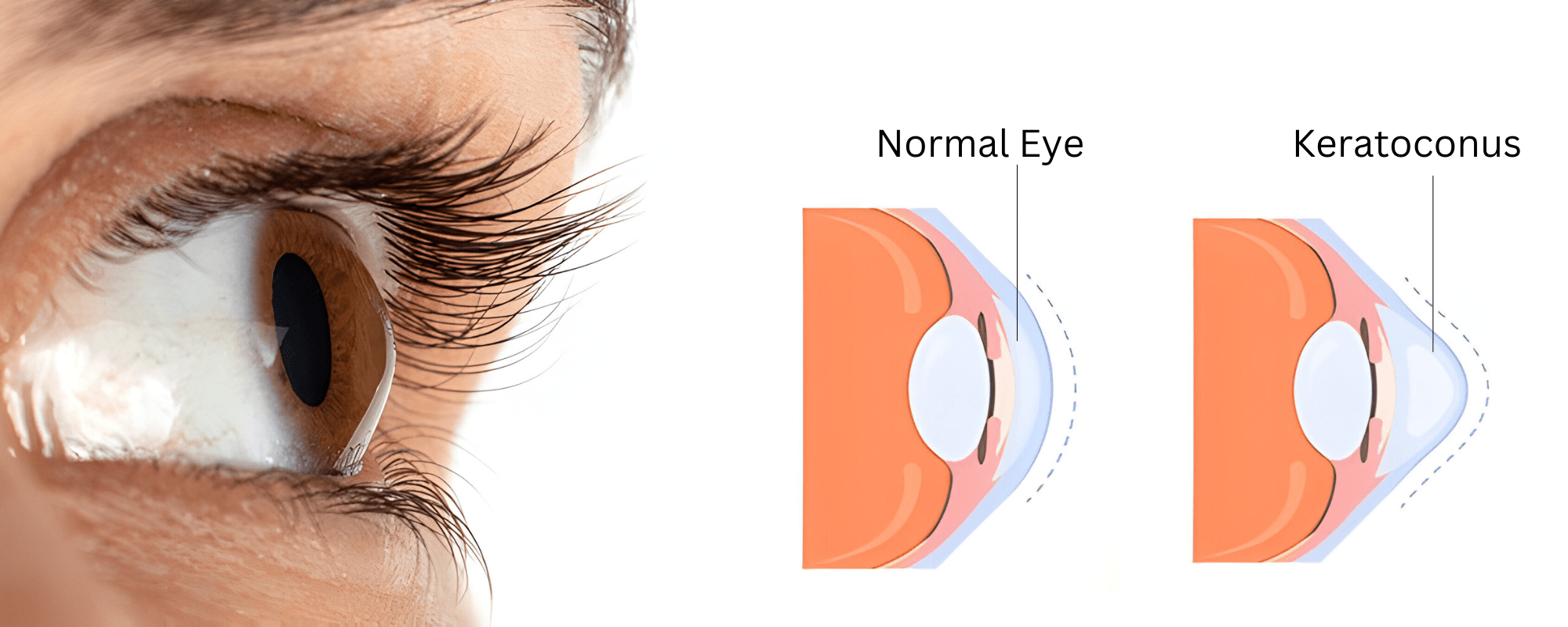
Symptoms of Keratoconus

Blurred or Distorted Vision

Increased Sensitivity to Light and Glare, More at Night
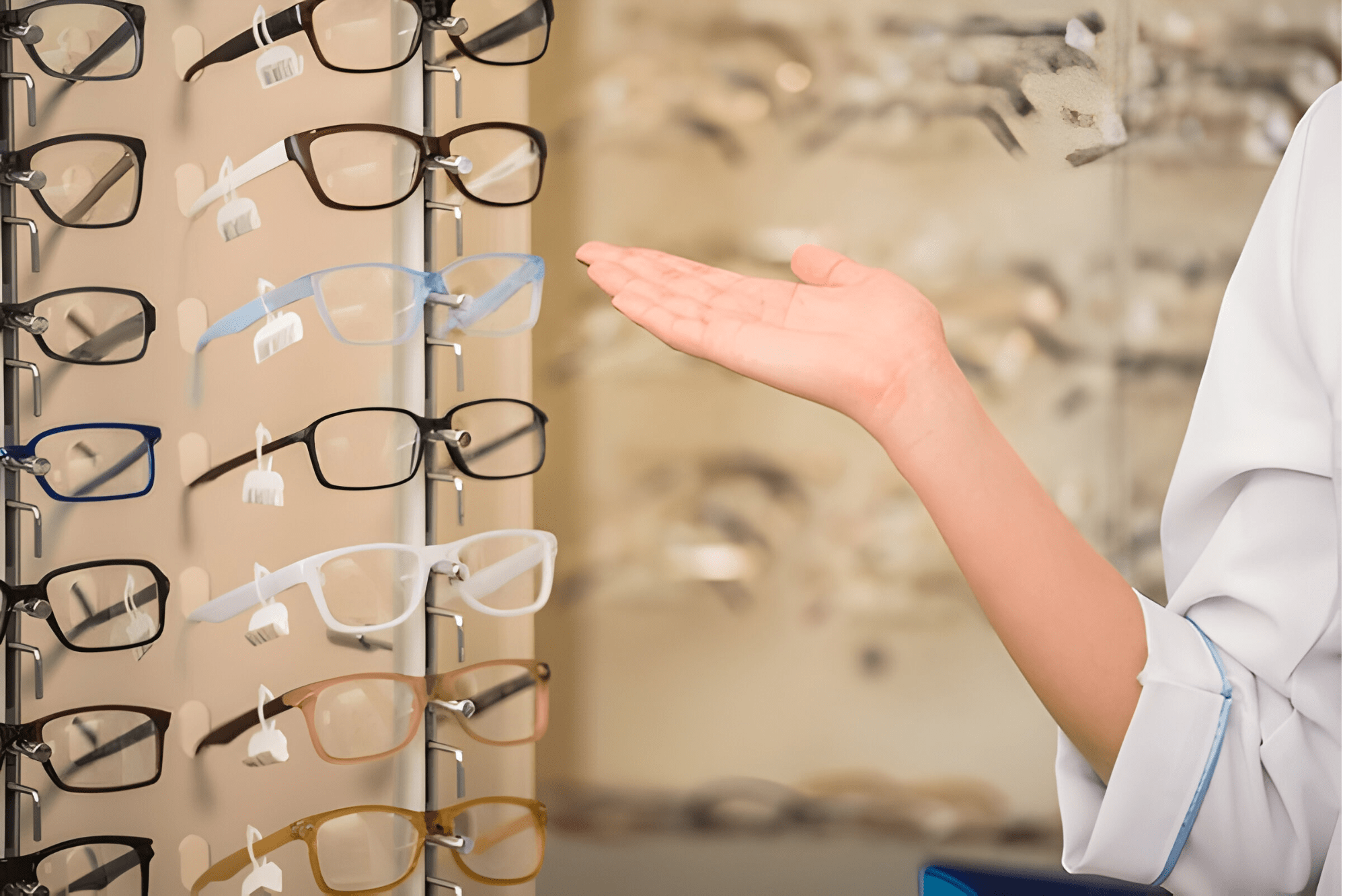
Frequent Changes in Eyeglass Prescriptions

Eye Strain and Headaches
Diagnosis of Keratoconus
Comprehensive Eye Examination:
- Visual Acuity Test: Measures how well you can see at various distances.
- Corneal Topography and tomography: Creates a detailed map of the cornea’s surface curvature, identifying any irregularities indicative of keratoconus. Which also helps in monitoring the disease progression.
- Ocular wavefront and Corneal wavefront: Shows us the corneal aberrations which is the patients point of view of an image created when light enters the eye through the irregular cornea.
- Heidelberg Anterion for cornea: It maps the corneal curvature and gives us an advanced SCORE for grading the severity of keratoconus
- Pachymetry: Measures the thickness of the cornea, essential for detecting thinning.
- Slit-Lamp Examination: Allows the doctor to examine the cornea and other structures of the eye in detail.
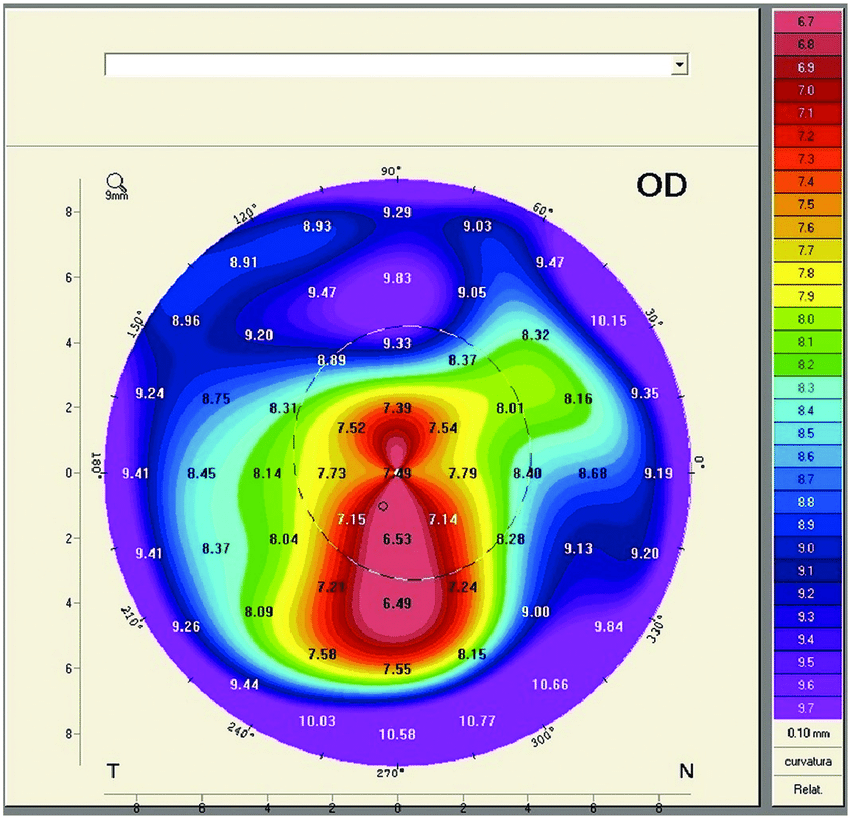
Treatment Options for Keratoconus
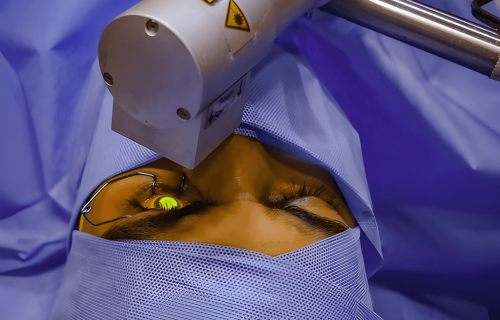
Corneal Cross-Linking (CXL):
A procedure designed to strengthen the corneal tissue and halt the progression of keratoconus. It involves the application of riboflavin followed by ultraviolet light exposure, increasing collagen cross-links in the cornea.
TREK (Topography-Guided Removal of Corneal Epithelium):
This innovative technique involves the precise removal of the corneal epithelium guided by topographical maps, which can improve the corneal surface’s regularity and enhance vision in keratoconus patients.
Glasses and Contact Lenses:
In early stages, glasses or soft contact lenses may suffice. As keratoconus progresses, rigid gas-permeable or scleral lenses may be necessary to improve vision.
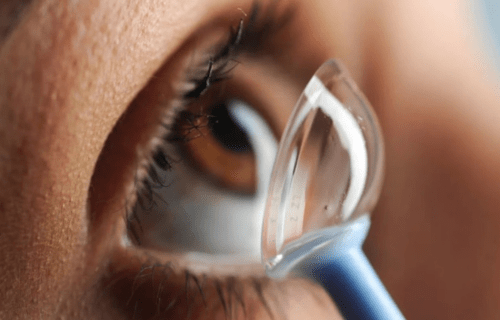
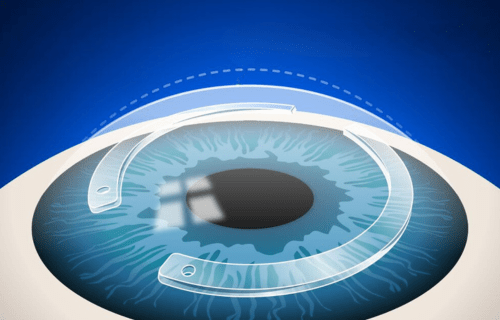
Intacs
These are small, plastic inserts placed within the cornea to flatten its cone shape, thereby improving visual acuity and contact lens fit.
Corneal Transplant
For advanced cases where other treatments fail, a corneal transplant may be required to replace the damaged tissue with healthy donor tissue.
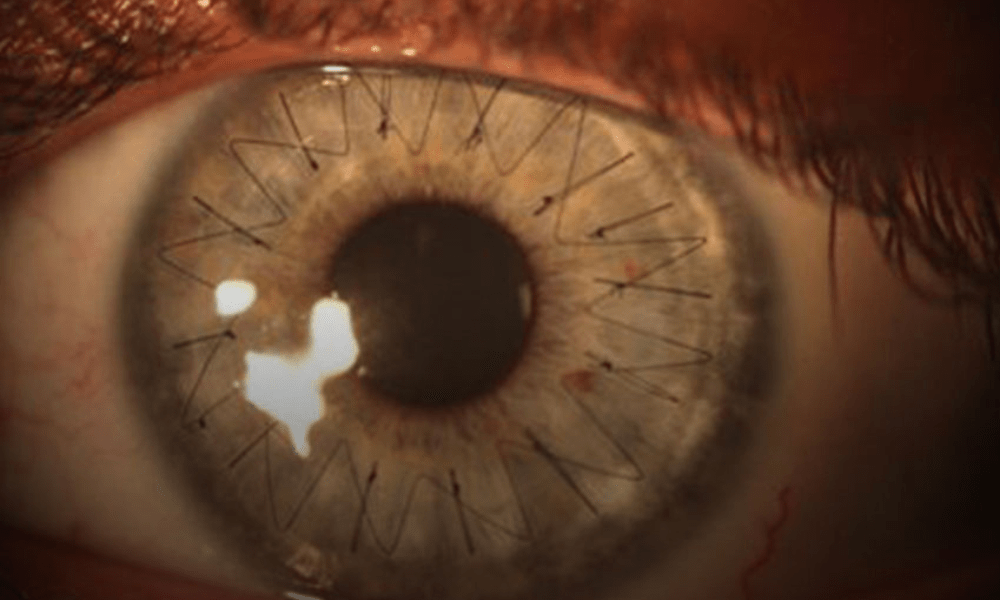
Post-Operative Care
Patients must adhere to a strict regimen of medications, including antibiotics and anti-inflammatory drops, to prevent infection and promote healing. Regular follow-up appointments are essential to monitor the eye’s recovery and adjust treatments as necessary.
Choosing Doctor Eye Institute
Doctor Eye Institute offers comprehensive care for keratoconus, employing cutting-edge technology and advanced treatment methods like TREK. The institute’s experienced specialists provide personalized care plans tailored to each patient’s unique condition, ensuring optimal outcomes and improved quality of life.

